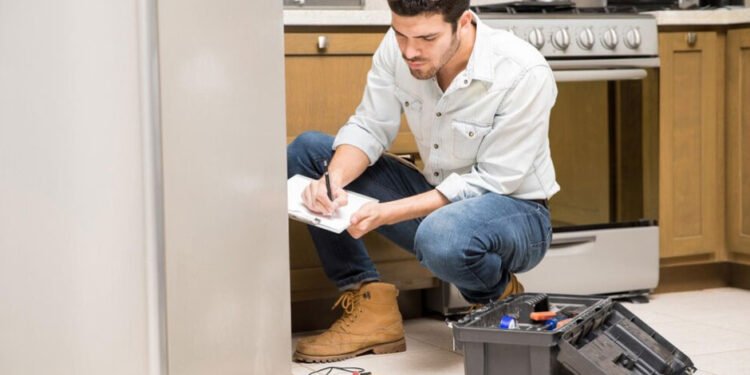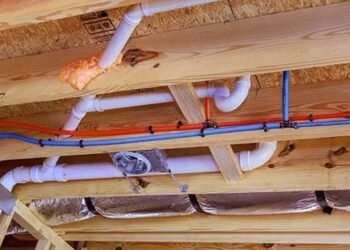Ah, yes. The legendary refrigerator. Truly an innovation that does not get the credit it deserves. Before the mundane fridge, humans had to rely on techniques like salting or drying to preserve food. The only way to cool a drink was to dip it in ice or freezing cold water, which wasn’t always an option for everybody. Now, with a modern fridge, you can store meat, dairy, vegetables, etc., and keep them for days or even weeks without worrying about them going bad. It is truly a fantastic addition to our lives that deserves more respect. So, when your fridge gives in, what’s the plan of action? Must you replace it, or is fixing it a viable option? How does one decide which option is worth it? Well, let’s find out.
Is Fixing a Fridge Possible?
So, yes, fixing a fridge is definitely possible, but it does depend upon factors such as its age and what the problem is. Issues like dirty condenser coils or a bad fan motor can be repaired, but for more intense procedures like a refrigerant leak, a professional fridge repair service would be needed.
Signs Your Refrigerator Needs Repair
So, now that we know repairs usually are the way to go, let’s find out the most common issues refrigerators face. Hardly ever does a fridge break down completely; usually, a specific system or component is the issue.
Here are a few signs that your refrigerator needs repair:
- If your fridge feels warmer or food seems to be spoiling faster than usual.
- A noisy fridge is a fridge that needs repairs. It is most likely that the motor or compressor is wearing out.
- If ice is forming in the freezer or fridge, the defrost system could be failing.
- A leaking fridge could mean a blocked defrost drain, a damaged water supply line, or a cracked drain pan. One should, by default, consider replacing water filters every 6 months.
Depending upon the damage assessed by a professional, the repair costs would vary. However, most of the issues stated here are fixable and are always more cost-effective than replacement.
What does the Public Say?
A survey was conducted by Consumer Reports wherein 95,711 individuals were asked about their experience dealing with 108,573 refrigerators that were purchased between 2012 and 2022. Now, surprisingly, or unsurprisingly depending upon whom you ask, when users reported the fridge malfunctioned, 62 percent of them were able to get it repaired on the very first attempt. Additionally, 25 percent were successful on two or more attempts.
From the survey, it was concluded that for any fridge that is 10 years or younger, it is far more economical to get it fixed instead of looking for a replacement.
When to Repair Your Refrigerator
While a thorough inspection from a professional is needed to truly diagnose which option is better, generally speaking:
- Since modern fridges last 10–15 years, it’s usually better to go for repairs if it’s within that time frame.
- If the repair cost is less than 50% of a new fridge, that’s the smarter decision.
- If your fridge has an ENERGY STAR rating, keeping it running can save money in the long run.
- If the issues are multiple but minor, obviously, it’s better to address them than to buy a new fridge altogether.
When to Replace Your Refrigerator
Sometimes, solutions aren’t so simple, and replacement is the only way. In those cases, it is best to simply opt for refrigerator replacement and save yourself the hassle. Here are situations where it makes sense:
- If your fridge is over 10–15 years old, it’s an older model that is less efficient and more likely to break down.
- If the repairs keep piling on, perhaps it is time to let go.
- If a major component like the compressor, control board, or sealed system has failed, replacing the fridge can be the cheaper alternative.
- New fridges need significantly less energy, so if the electricity bill is adding up, an upgrade might be due.
Fact: ENERGY STAR-certified refrigerators use 40% less energy than older models, which can save households up to $300 over five years.
Conclusion
To wrap things up, just because a fridge isn’t working properly doesn’t automatically mean you need a new one. Assess the issue(s) and see if it can be addressed. If your fridge is relatively new—less than 10 years old—refrigerator repair is the smart move. However, anything over a decade and constantly breaking down might call for a replacement instead. When in doubt, compare the repair costs to the price of a new fridge and make your decision using the golden rule: If fixing it costs more than half of a replacement, it’s time to upgrade.












